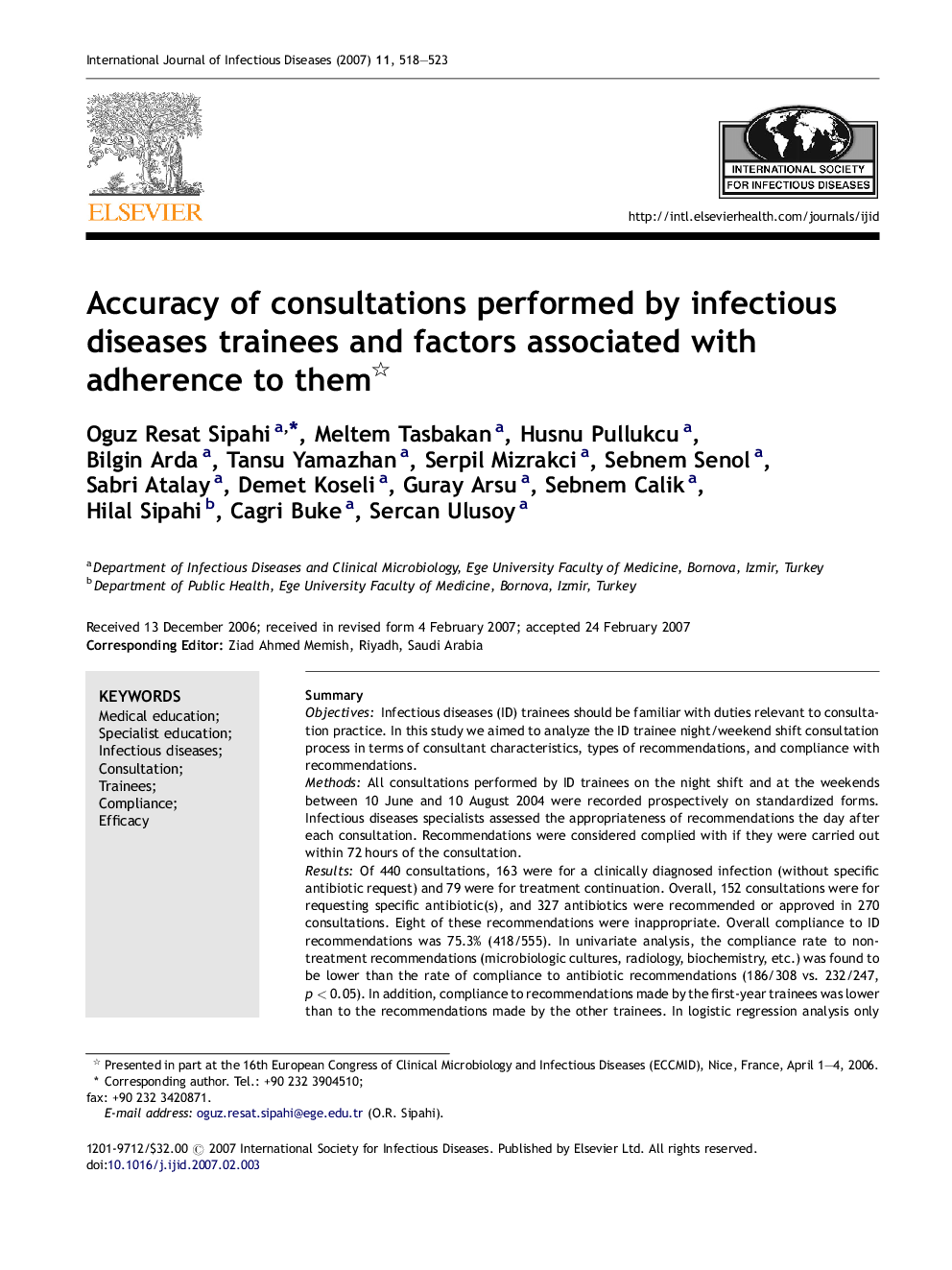| Article ID | Journal | Published Year | Pages | File Type |
|---|---|---|---|---|
| 3365083 | International Journal of Infectious Diseases | 2007 | 6 Pages |
SummaryObjectivesInfectious diseases (ID) trainees should be familiar with duties relevant to consultation practice. In this study we aimed to analyze the ID trainee night/weekend shift consultation process in terms of consultant characteristics, types of recommendations, and compliance with recommendations.MethodsAll consultations performed by ID trainees on the night shift and at the weekends between 10 June and 10 August 2004 were recorded prospectively on standardized forms. Infectious diseases specialists assessed the appropriateness of recommendations the day after each consultation. Recommendations were considered complied with if they were carried out within 72 hours of the consultation.ResultsOf 440 consultations, 163 were for a clinically diagnosed infection (without specific antibiotic request) and 79 were for treatment continuation. Overall, 152 consultations were for requesting specific antibiotic(s), and 327 antibiotics were recommended or approved in 270 consultations. Eight of these recommendations were inappropriate. Overall compliance to ID recommendations was 75.3% (418/555). In univariate analysis, the compliance rate to non-treatment recommendations (microbiologic cultures, radiology, biochemistry, etc.) was found to be lower than the rate of compliance to antibiotic recommendations (186/308 vs. 232/247, p < 0.05). In addition, compliance to recommendations made by the first-year trainees was lower than to the recommendations made by the other trainees. In logistic regression analysis only recommendations including antibiotic treatment was associated with higher compliance (p = 0.0001, odds ratio = 10.2, 95% CI = 5.7–18.3).ConclusionsID trainees are capable of evaluating patients and recommending appropriate antibiotics. Methodologies to improve the compliance to non-treatment-based recommendations and optimizing antibiotic selection seem to be necessary.
